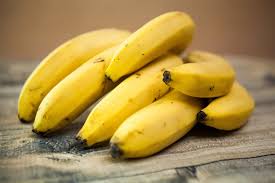Physical Address
304 North Cardinal St.
Dorchester Center, MA 02124
Physical Address
304 North Cardinal St.
Dorchester Center, MA 02124

Approximately 120 million people in the United States suffer from high blood pressure, which increases their chances of experiencing heart attacks, strokes, and other severe health problems. Although high blood pressure has multiple causes, recent studies indicate that a simple change to your eating habits might help reduce it.
The key is incorporating more potassium into your meals—a nutrient abundant in foods like bananas and dark leafy vegetables. What’s particularly noteworthy is that this approach may be more effective than the typical recommendation to cut back on salt consumption.
However, it would be unrealistic to expect that simply eating more potassium-rich foods will single-handedly manage your blood pressure, particularly if you’re dealing with a long-term condition. Medical professionals emphasize that increasing potassium consumption should work alongside other treatments or strategies your physician recommends.
This is definitely a topic worth discussing with your healthcare provider, according to Dr. Andrew Chang, an assistant professor in the Department of Medicine, Division of Cardiovascular Diseases and Hypertension at Rutgers Robert Wood Johnson Medical School. “While potassium consumption is typically safe, it’s not appropriate for everyone,” he explains. “People with kidney problems or those on specific medications could be harmed by increasing their potassium intake.”
Whether you’re planning to bring this up at your next medical appointment or are simply interested in learning more, here’s what you should know about how potassium affects blood pressure.
Featured specialists: Dr. Cheng-Han Chen serves as an interventional cardiologist and medical director of the Structural Heart Program at MemorialCare Saddleback Medical Center in Laguna Hills, California. Jessica Cording, R.D., wrote The Little Book of Game-Changers. Dr. Andrew Chang is an assistant professor in the Department of Medicine, Division of Cardiovascular Diseases and Hypertension at Rutgers Robert Wood Johnson Medical School.
Research published in The American Journal of Physiology, Renal Physiology used mathematical modeling to examine how sodium and potassium affect blood pressure levels. The scientists discovered that boosting potassium consumption might reduce blood pressure as much as three times more effectively than reducing sodium consumption. According to the study authors, “Too much sodium in the diet elevates blood pressure, while consuming high amounts of potassium produces the reverse outcome.”

Several factors explain this phenomenon. “Potassium and sodium function as partners,” explains Jessica Cording, R.D., author of The Little Book of Game-Changers. “Our cells depend on maintaining a specific equilibrium between these two minerals.”
Potassium can actually counteract sodium’s harmful effects, notes Dr. Chang. Though excessive sodium intake contributes to elevated blood pressure, potassium helps the body eliminate sodium via urination, he clarifies.
Additionally, potassium helps relax blood vessel walls, which subsequently reduces blood pressure, according to Dr. Cheng-Han Chen, an interventional cardiologist and medical director of the Structural Heart Program at MemorialCare Saddleback Medical Center in Laguna Hills, California.
Although reducing sodium consumption may still be important, increasing potassium intake might be a more manageable dietary modification for many individuals, Dr. Chang suggests. “Achieving lower blood pressure through sodium reduction can be challenging and often unsuccessful due to the abundance of high-sodium options in contemporary diets and grocery store products,” he notes. “Enhanced blood pressure control through potassium consumption may be more achievable since incorporating potassium-rich foods into one’s diet tends to be more practical than avoiding high-sodium items.”
Recommended potassium intakes vary slightly by person. However, most adult women should aim to have 2,600 milligrams of potassium a day, while most adult men should strive for 3,400 milligrams daily, according to the National Institutes of Health (NIH). Those recommendations increase to 2,900 milligrams during pregnancy and 2,800 milligrams while nursing for women 19 and older.
Potassium is available in numerous food options, though it’s important to consult your physician before increasing your intake of this mineral. According to the NIH, here are some of the richest sources:
TO READ MORE, OPEN THE LINK BELOW: